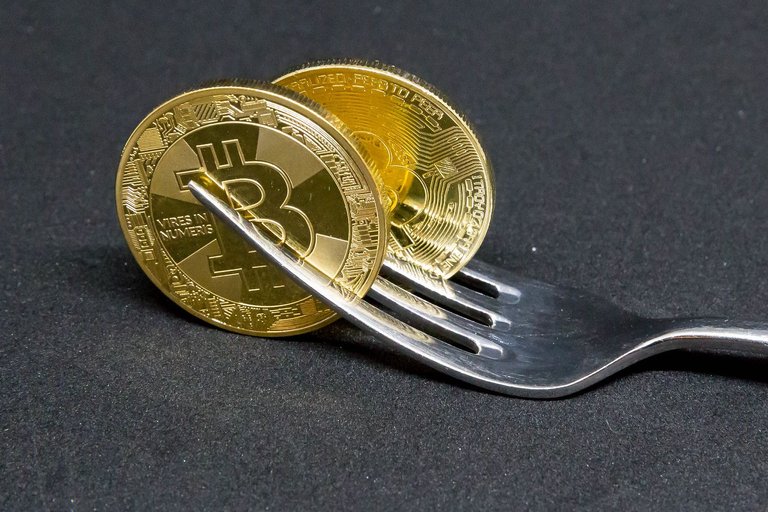Can Hive be hijacked?
I wrote a number of articles mentioning how Bitcoin is now being hijacked by Wall Street. This officially ends Satoshi Nakamoto's vision for electronic cash, at least as it applies to that currency. The approval of a Bitcoin ETF based upon the spot pricing was the final nail in the coffin. We now see billions flooding in, something that was expected.
While this can have a positive impact on price, what does the future hold? For bitcoin, it seems clear: it will be in the hands of Wall Street institutions.
This brings up another point: could the same thing happen to Hive?
To answer this question, we have to delve into the value of each. For that, we will analyze both ecosystems to determine where value is located.
Bitcoin
Like all blockchains, Bitcoin is a database. At its core, it is nothing more than a ledger, storing transactions as they go back and forth.
Many people such as Jamie Dimon assert that bitcoin has no value. Here is where we have to uncover what we are talking about.
Bitcoin is a digital network. It allows for the transfer of value in a permissionless manner. We also see a database that is not controlled by any institution. To say this has no value is misleading in my view. Certainly, there is value in this.
As for the coin, it has no impact upon the network. Due to the consensus mechanism used, it is the miners who are responsible for the blocks. Hence, we see a separation between the network and the coin in this regard.
This is why bitcoin has the monetary element as the sole focus. If we look at the network, we see very little. The database is mostly an accounting of financial transactions. This is pretty worthless data. At the same time, we see a network that is slow and rather expensive to write to. When it comes to performance, there are many other options that put Bitcoin to shame.
Security is another matter entirely. Here we see something that is secure. To date, Bitcoin has not been hacked. Here again, we see some value in this, negating what Dimon stated.
Fork It
If bitcoin is being hijacked, why not just fork it?
This is normally a defense within the blockchain world. There is a problem with this approach: it already happened.
From the start, Bitcoin was forked. Litecoin was the first major fork that gained some traction. The problem is this is not bitcoin. In fact, Charlie Lee even positioned Litecoin as a cheap replica of BTC. He called it "silver to bitcoin gold".
Basically, the value of bitcoin is not tied to the network. The data, or even the code, provides very little. If it is not bitcoin, there is not much to it.
We see this in the market. No fork of Bitcoin has come close to the value of the original. Hence, the value of bitcoin is not tied to the network or database.
This is why it can be hijacked. Nothing else out there is like it.
The Hive Network
What makes Hive different?
To start, there is a database that contains more than just financial transactions. This means that Hive can contain data that is more valuable than what Bitcoin holds. Financial transactions are pretty worthless over time as it gets older. The same is true for news information. That said, we have a lot of data that is worthwhile and holds value over time.
This is essentially what the Internet is built upon. Every page we go to is pulling from a database. Therefore, Hive being a decentralized text database holds greater potential than a network mostly storing financial data.
We also can make the case the code has some value. Hive has features that make it a very powerful network. This is a result of the base layer programming. There is the ability to add blocks every 3 seconds, with one block irreversibility built in. This means the average settlement time is around 1.8 seconds. There are other features such as recurrent payments that are part of the core programming.
Forking Hive
If there was an attempted hijacking of Hive, would forking hold the same result as with Bitcoin?
The answer is no.
With bitcoin, we now see where the value it. It is in the concept of bitcoin. That is it.
When we look at Hive, nobody cares. There is no mystic or unicorn atmosphere surrounding it. In fact, Hive came into being as the result of a fork from Steem. This means the value resides somewhere else.
The coding and database has some value. Of course, a fork would simply duplicate that. Thus, we are not looking at anything nove. Over time, development could offer more features in the coding that was previously present, something that took place with Hive.
Nevertheless, we are still not looking at a difference maker.
What changes the entire equation is when we look at what is tied to Hive. It is the applications, games, services, and even sidechains that provide the value. This means where they are focused is crucial to this discussion. Here is the value generators.
The question with forking Hive comes down to what happens with everything else. If the majority of the list above, we will call community, remains, then forking is not a defense. However, if the community moves to the new chain, the hijacking resulted in nothing.
This is the essential component. Where does the value reside?
In Conclusion
If the value resides simply in the name, then a hijacking can take place.
This is the case with bitcoin. Few care about the network since it provides very little. Security is the main feature and that is one of the reason why Bitcoin has a future (unless the miners can be hijacked).
Open source code and a public database also do not have much value since they can simply be d copied. What is contained in said database is important yet it only serves as a foundation for what the applications and games tap into.
Ultimately, the value comes down to what the ecosystem is providing. When a bunch of individual projects are building, these platforms add more value to the entirety. These are not part of the base code, hence not beholden to that network.
If there is a fork, these projects can simply change where their applications are directed. New APIs that are set up simply contain the new destination for these platforms. At the same time, the users tend not to care where their data is being housed. As long as the user experience is similar, they tend not to be concerned.
Forking is a nuclear option that blockchains offer. With Hive, which was formed out of this pathway, it is still present. The value does not reside in the raw code or even database. Instead, it is the projects that are built and tie into the base database that provide the value.
This means it all boils down to where they go. If they moved to the new chain, there is a good chance their users will follow.
And this would likely leave the hijackers with very little.
Posted Using InLeo Alpha


